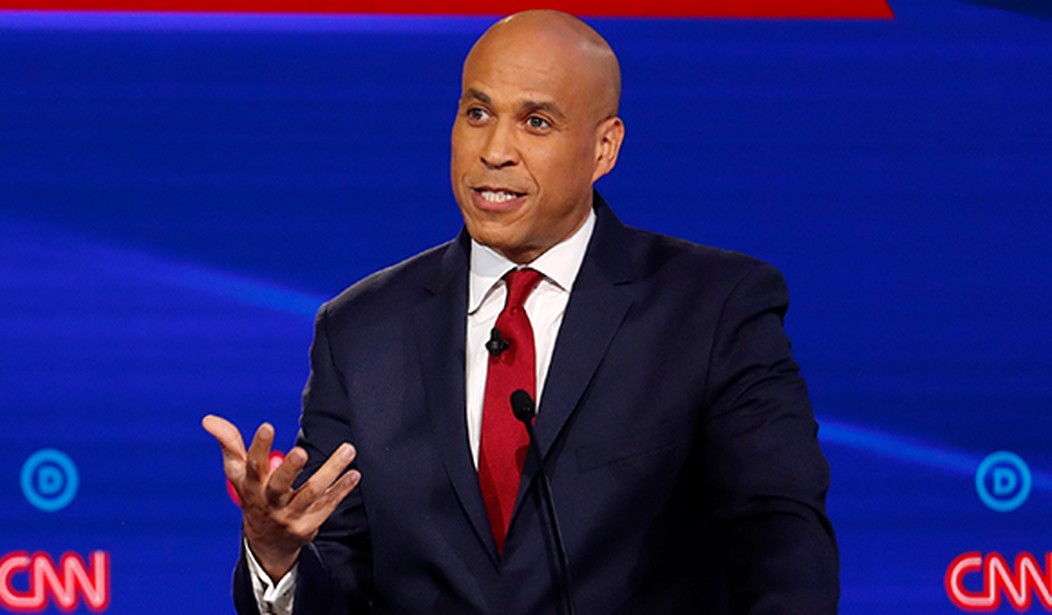Two young men grow up in the same neighborhood and spend four years together at the same high school taking the same classes from the same teachers and playing on the same winning football team.
Both are good students and dedicated, hardworking athletes. But one is a journeyman offensive lineman, while the other is an all-state quarterback.
In their senior year, they both decide they want to attend the same prestigious private university that plays in the Football Bowl Subdivision -- and where the tuition and board and room exceed $60,000 per year.
The university accepts them both. But the journeyman offensive lineman -- who was never recruited to play college football -- needs to find a way to come up with the $60,000-plus per year the school will cost.
The all-state quarterback gets a full ride to play on the university's football team.
Meanwhile, according to the Census Bureau, only 36 percent of Americans 25 and older as of 2019 had managed to earn a college degree. A significant majority -- 64 percent -- had not.
Among Americans who started as student athletes at a Division One college in 2013, 90 percent went on to earn a degree, according to the National Collegiate Athletics Association. Among student athletes who specifically played football at a Football Bowl Subdivision school, 81 percent went on the graduate.
Was that hypothetical high school quarterback who got a scholarship to play football at a Football Bowl Subdivision school where the tuition and fees exceeded $60,000 -- and where 81 percent of football players graduated -- a victim of exploitation?
Democratic Sen. Cory Booker of New Jersey seems to be claiming he was -- at the same time he proves he was not.
Recommended
"This is one of the few industries in America that is allowed to exploit those who are responsible for generating most of the revenue," Booker told ESPN in December about major college sports.
"The NCAA has exploited generations of college athletes for its own personal financial gain by preventing athletes from earning any meaningful compensation and failing to keep the athletes under its charge healthy and safe," Booker was quoted as saying by the Associated Press.
To repair this perceived evil, Booker joined with Democratic Sen. Richard Blumenthal of Connecticut to introduce what they call The College Athletes Bill of Rights.
What would this "Bill of Rights" do?
"The most ambitious -- and likely the most contentious -- provision," reports The New York Times, "would require colleges to share the profits they make with the athletes who generate them. In sports where revenues exceed the cost of scholarships across an entire division -- at the moment that would be athletes who play football, men's and women's basketball and baseball -- the profits generated in each sport would be shared equally with the scholarship players."
But not with the walk-ons or with the players at schools -- or participating on sports teams -- that do not offer athletic scholarships.
What type of salary would a college athlete on a scholarship get under Booker's bill?
"Using data supplied by universities to the Department of Education, Booker said that would mean payments of $173,000 a year to football players, $115,600 to men's basketball players, $19,050 to women's basketball players and $8,670 to baseball players who are on full scholarship," The New York Times reported.
To make sure these salaries are paid and colleges fully comply with Booker's mandates, the law would also create a Commission on College Athletics. This commission would consist of nine presidential appointees and would have potentially sweeping powers.
Booker's bill states in part: "There is established a commission, to be known as the 'Commission on College Athletics,' for the following purposes: (1) To act for the benefit of all college athletes without regard to receipt of grant-in-aid. (2) To protect the economic interests of college athletes."
"This group, which would receive $50 million in taxpayer funding for its first two years, would take on a lot of the work of policing college sports," ESPN reported.
The New York Times noted it would also have the power to "ban individuals from working in college athletics."
Booker's bill says: "An enforcement action carried out by the Commission shall be construed as an enforcement action carried out by the Federal Government."
The fundamental flaw in Booker's approach to college athletics is that he looks at it as a financial transaction rather than an educational one.
Amateur college football often teaches young men more important lessons than they can learn in a lecture hall. Booker, who played on a scholarship at Stanford, seemed to explain this himself -- even as he was proposing his bill that would convert major college football into a professional game.
"I would not be where I am today without football," Booker wrote in Sports Illustrated last month.
"Football taught me about character, honor, leadership, discipline, grit and so much more," he said. "The men I played with, who coached me, believed in me, taught me and demanded from me, all shaped me in profound and indelible ways. I can never repay them or my sport for what it did for me."
Like other young men who are given a scholarship to attend college and play football there, Booker was not exploited. He was given a great and unique opportunity.
There is also no doubt that the opportunities for college students to learn through athletics would greatly diminish if Booker succeeded in forcing colleges to surrender half their athletic revenues to pay six-figure salaries to students playing those few sports that attract many paying fans.
Terence P. Jeffrey is the editor in chief of CNSnews.com.

























Join the conversation as a VIP Member